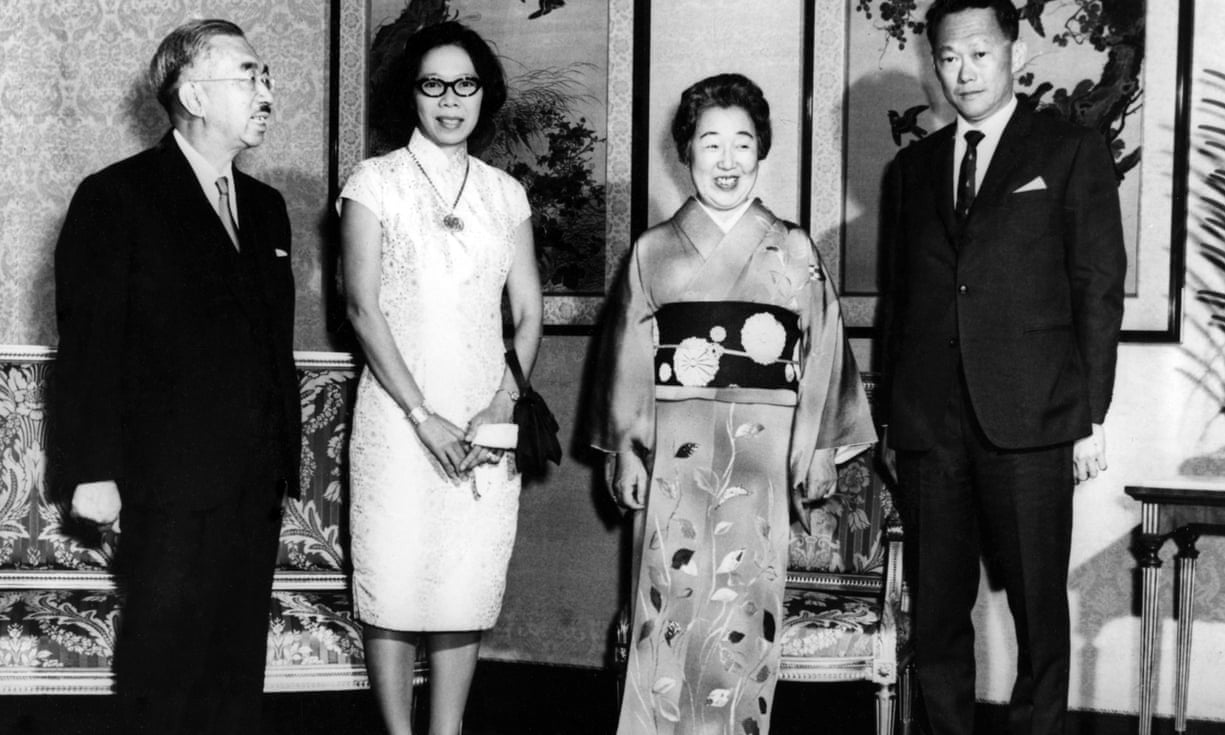Re: BBC's report on LKY death
Guardian also quite objective, seems to be saying that LKY was like Emperor Qian Long, started out good, but ended up bad for the People:
............
[LKY] did
NOT create modern Singapore’s prosperity. The city state thrived naturally in a region of economic growth and rapid development of world trade. However, he certainly created the image of the state in his own likeness.
................
Lee has been described as many things. To Chinese, particularly during his days fighting Chinese chauvinism in the name of a multiracial Singapore identity, the Cambridge-educated lawyer brought up to believe in English education if not in British institutions, Lee was a “banana” – yellow on the outside, white inside. However, later in life, as Chinese identity and Confucian attitudes emphasising education, discipline and hierarchy became more important,
he would be criticised for presenting himself as a fount of wisdom, a convincing articulator of modern Asia to western audiences, while actually behaving with all the intolerance of a Chinese emperor. At his worst, he could combine imperial hauteur with extraordinarily petty spite, relishing the destruction of irritating but unthreatening critics. At his best, he had an incisive mind and clear political judgment. For an avowed elitist, he had a remarkable ability to talk to a crowd.
....................
Little is known of his actual role during the occupation, other than that he learned Japanese (he had a remarkable facility for languages), worked for Domei, the Japanese news agency, and may in the latter days of the war been of help to the British. The obscurity with which this period has been shrouded subsequently gave rise to much speculation about his relationships with the British and the Japanese.
................
Some government intervention in the economy was simply pragmatic.
But much of it had political overtones. The state, for example, created what is now the largest commercial bank, the Development Bank of Singapore, though there was never any lack of private ones. Its forced savings scheme was a colonial-era provident fund that was used to generate savings that helped give Singapore the best infrastructure in Asia.
The scheme gave the government control over far more money than it needed, thus enabling it to dictate not only the pattern of investment but housing and consumer spending.
.............
However,
critics – and even some government loyalists – noted a decline in the entrepreneurial spirit. Educated Singaporeans did not create enterprises: they went to work, very efficiently, for ones already created by foreigners, or the government. The administration was both extraordinarily pedantic and uncorrupt.
Yet part of Singapore’s prosperity rested on it providing a safe haven for money made corruptly in neighbouring countries, smuggling or drug trafficking.
Intellectually, Lee recognised the importance of money-making. Money brought power. Yet he exhibited the kind of distaste for businessmen common among Chinese mandarins, socialists and intellectuals. Thus Singapore’s indigenous capitalists were kept on a short leash. From time to time prominent examples were made of “misbehaviour”.
................
Myriad rules, taxes, incentives and exhortations confronted the citizen. The result was an orderly society, but only marginally freer of crime than Hong Kong.
It was a society where people were afraid to speak out. Lee the great debater was now the winner by default, whether in parliament or the courts.
While continuing with parliamentary elections, Lee muzzled the press, international as well as local, and stamped hard on opponents of the PAP.
Opposition politicians were hounded by legal actions – often for libel, which Lee invariably won – and bankrupted. Social workers were branded as communists and detained till they confessed, often after coercive treatment.
Quite why Lee, revered as the father of the nation, found it necessary to use such sledgehammers was not clear. In the 50s, the communists were real and ruthless.
But as time went on, real threats vanished. Yet the unrelenting ambition did not, and Lee was unable to change his self-image as a political streetfighter, the gang boss who forever had to prove his ruthlessness.
.................
Increasingly, there was only one leader. Comrades from the heroic anti-colonial days retired, drifted away or were pushed out – in the case of President Devan Nair in 1985, after a humiliating allegation of alcoholism that he contested. New blood was brought into the PAP, but increasingly it became a tightknit elite.
It retained an effective command structure but the mass base eroded.
.....................
Goh had been unable to deliver the “kinder, gentler” Singapore that had been expected. The force of Lee’s personality, the moral authority that he commanded, left him the arbiter of anything he cared about. Like a Mao in miniature, he seemed both to enjoy and have contempt for the adulation that surrounded him.
Never a tolerant man, he began to show some of the symptoms of age.
International acclaim added to his convictions of his own brilliance and righteousness.
Some saw excesses of personal power, not just in his treatment of opponents but in the rapid promotion of his sons. The Singapore courts silenced a string of suggestions of dynastic politics.
..................
http://www.theguardian.com/world/2015/mar/22/lee-kuan-yew





